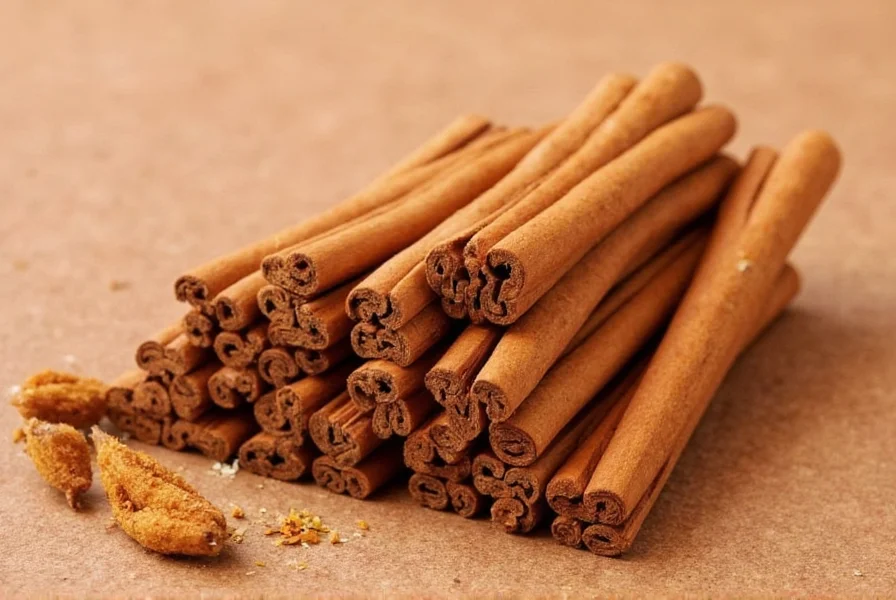For those exploring natural approaches to support blood pressure management, cinnamon has gained attention in recent years. This common spice, used for centuries in traditional medicine systems, contains bioactive compounds that may influence cardiovascular health. Understanding the actual evidence behind is cinnamon good for high blood pressure requires examining both promising research and important limitations.
The Science Behind Cinnamon and Blood Pressure
Multiple studies have investigated cinnamon's potential cardiovascular benefits. A 2013 meta-analysis published in Nutrition Research reviewed several clinical trials and found that cinnamon supplementation was associated with modest reductions in both systolic and diastolic blood pressure, particularly in people with metabolic disorders. The average reduction was approximately 5-10 mmHg for systolic pressure.
Researchers believe cinnamon's potential blood pressure benefits may stem from several mechanisms:
- Improved endothelial function (blood vessel health)
- Anti-inflammatory properties
- Antioxidant effects that reduce oxidative stress
- Potential improvement in insulin sensitivity, which indirectly affects blood pressure regulation

Types of Cinnamon Matter for Blood Pressure Management
Not all cinnamon is created equal when considering cinnamon benefits for high blood pressure. Two main varieties exist:
| Type | Coumarin Content | Recommended for BP Management | Notes |
|---|---|---|---|
| Ceylon Cinnamon | Very low (0.004-0.016%) | Yes | "True" cinnamon, safer for regular consumption |
| Cassia Cinnamon | High (2.15-6.97%) | Limited use | Common in supermarkets, potential liver concerns with regular use |
For those considering how much cinnamon for high blood pressure, most studies used doses between 1-6 grams daily (approximately 1/4 to 1 1/2 teaspoons). However, the optimal dose remains unclear, and higher doses of Cassia cinnamon may pose health risks due to coumarin content.
Important Limitations of Current Research
While the preliminary research on cinnamon and hypertension research appears promising, several critical limitations exist:
- Most human studies have small sample sizes (fewer than 100 participants)
- Many trials lasted only 8-12 weeks, insufficient for determining long-term effects
- Studies often included participants with diabetes or metabolic syndrome, not exclusively hypertension
- Significant variability in cinnamon types, doses, and formulations used
- Lack of large-scale, long-term randomized controlled trials
A 2020 review in Phytotherapy Research concluded that while cinnamon shows potential as a complementary approach, "the current evidence is insufficient to recommend cinnamon as a standard treatment for hypertension." This balanced perspective is crucial when evaluating does cinnamon lower blood pressure naturally.
Safety Considerations and Medication Interactions
Individuals with high blood pressure considering cinnamon supplementation should be aware of potential interactions:
- Cinnamon may enhance the effects of blood pressure medications, potentially causing hypotension
- Cassia cinnamon's high coumarin content may interact with blood thinners like warfarin
- People with liver conditions should exercise caution with Cassia cinnamon
- Pregnant women should consult their healthcare provider before using therapeutic doses
Always discuss adding cinnamon supplements to your regimen with your healthcare provider, especially if you take medications for is cinnamon safe with blood pressure medication.
Practical Recommendations for Blood Pressure Management
If you're interested in exploring cinnamon as part of your approach to managing blood pressure:
- Choose Ceylon cinnamon over Cassia for regular use
- Start with small amounts (1/4 to 1/2 teaspoon daily)
- Monitor your blood pressure regularly to track any changes
- Continue all prescribed medications unless directed otherwise by your doctor
- Consider cinnamon as one component of a comprehensive approach including diet, exercise, and stress management
Remember that no single food or supplement can replace evidence-based medical treatments for hypertension. The most effective approach to managing high blood pressure combines medication (when prescribed), dietary changes like the DASH diet, regular physical activity, stress reduction, and adequate sleep.
Conclusion: A Modest Potential Role
Based on current evidence, cinnamon may offer modest support for blood pressure management but should never replace prescribed treatments. The research on cinnamon blood pressure studies shows promise but remains preliminary. For those interested in natural approaches to complement their hypertension management, cinnamon—particularly Ceylon variety—could be a safe addition to an overall heart-healthy lifestyle when used in moderation and discussed with a healthcare provider.
Frequently Asked Questions
Can cinnamon replace my blood pressure medication?
No, cinnamon should never replace prescribed blood pressure medication. While some studies show modest blood pressure-lowering effects, these are not sufficient to manage hypertension alone. Always continue your prescribed medications and consult your doctor before making any changes to your treatment plan.
How much cinnamon should I take for high blood pressure?
Research studies have used doses ranging from 1-6 grams (approximately 1/4 to 1 1/2 teaspoons) daily. However, there's no established therapeutic dose. If you choose to try cinnamon, start with small amounts (1/4 teaspoon of Ceylon cinnamon daily) and monitor your blood pressure. Consult your healthcare provider for personalized guidance.
Which type of cinnamon is best for blood pressure management?
Ceylon cinnamon is generally preferred over Cassia for regular consumption due to its much lower coumarin content. Cassia cinnamon contains high levels of coumarin, which can cause liver damage with prolonged use. For those considering cinnamon as part of their approach to cinnamon types for blood pressure management, Ceylon is the safer option for regular use.
How long does it take for cinnamon to lower blood pressure?
Research suggests any potential blood pressure effects from cinnamon would likely take several weeks to become noticeable, if they occur at all. Most studies showing benefits lasted 8-12 weeks. However, individual responses vary significantly, and some people may not experience any measurable changes in blood pressure from cinnamon consumption.
Can I use cinnamon if I'm already taking blood pressure medication?
You can potentially use cinnamon while on blood pressure medication, but you must consult your healthcare provider first. Cinnamon may enhance the effects of some blood pressure medications, potentially causing your blood pressure to drop too low. Your doctor can help determine if cinnamon is appropriate for you and may need to adjust your medication dosage accordingly.










 浙公网安备
33010002000092号
浙公网安备
33010002000092号 浙B2-20120091-4
浙B2-20120091-4